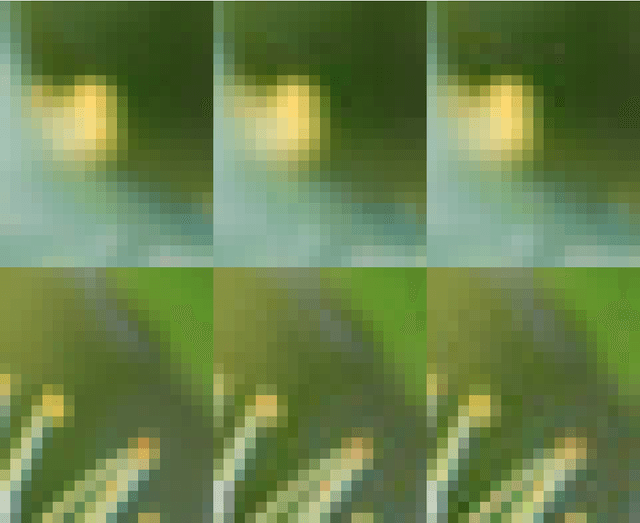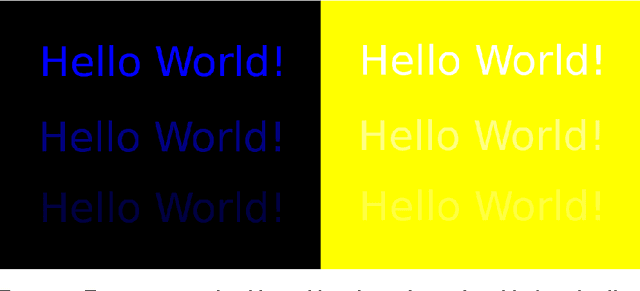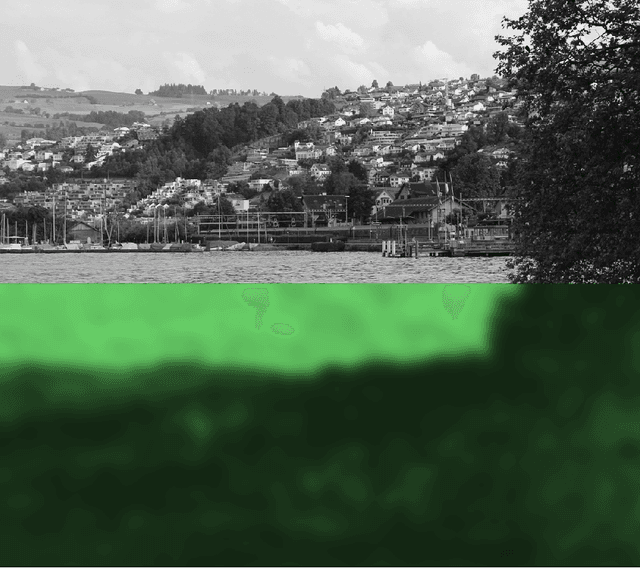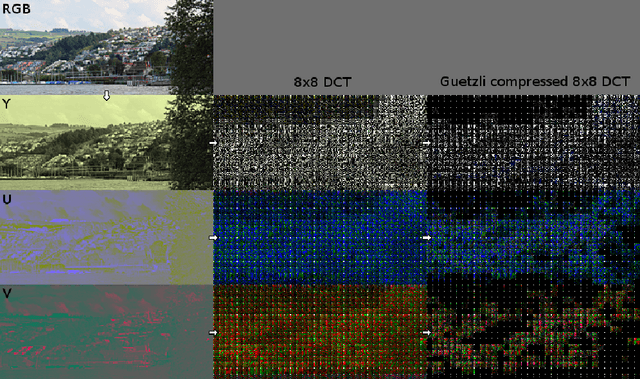Zoltan Szabadka
Users prefer Jpegli over same-sized libjpeg-turbo or MozJPEG
Mar 27, 2024Abstract:We performed pairwise comparisons by human raters of JPEG images from MozJPEG, libjpeg-turbo and our new Jpegli encoder. When compressing images at a quality similar to libjpeg-turbo quality 95, the Jpegli images were 54% likely to be preferred over both libjpeg-turbo and MozJPEG images, but used only 2.8 bits per pixel compared to libjpeg-turbo and MozJPEG that used 3.8 and 3.5 bits per pixel respectively. The raw ratings and source images are publicly available for further analysis and study.
Guetzli: Perceptually Guided JPEG Encoder
Mar 13, 2017



Abstract:Guetzli is a new JPEG encoder that aims to produce visually indistinguishable images at a lower bit-rate than other common JPEG encoders. It optimizes both the JPEG global quantization tables and the DCT coefficient values in each JPEG block using a closed-loop optimizer. Guetzli uses Butteraugli, our perceptual distance metric, as the source of feedback in its optimization process. We reach a 29-45% reduction in data size for a given perceptual distance, according to Butteraugli, in comparison to other compressors we tried. Guetzli's computation is currently extremely slow, which limits its applicability to compressing static content and serving as a proof- of-concept that we can achieve significant reductions in size by combining advanced psychovisual models with lossy compression techniques.
Users prefer Guetzli JPEG over same-sized libjpeg
Mar 13, 2017Abstract:We report on pairwise comparisons by human raters of JPEG images from libjpeg and our new Guetzli encoder. Although both files are size-matched, 75% of ratings are in favor of Guetzli. This implies the Butteraugli psychovisual image similarity metric which guides Guetzli is reasonably close to human perception at high quality levels. We provide access to the raw ratings and source images for further analysis and study.
 Add to Chrome
Add to Chrome Add to Firefox
Add to Firefox Add to Edge
Add to Edge